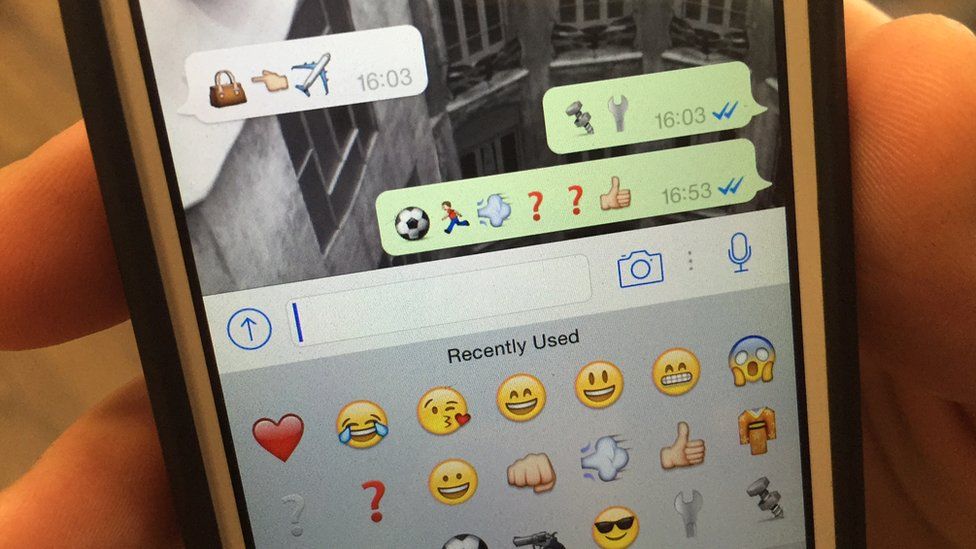Emojis blamed as words lose out to pictures
- Published

Emojis are being blamed for the end of the English language as we know it.
A leading expert says the way we communicate is changing to a more "pictographic form".
But Professor John Sutherland, from University College, London, says it's not a new concept.
"This harks back to a caveman form of communication where a single picture can convey a full range of messages and emotions.
"In the future, less words and letters will be used in messaging as pictures and icons take over the text speak language."
Prof Sutherland says it's all down to apps like Instagram, Vine and Snapchat.
"The English language is evolving at a faster rate now than at any other time in history because of social media and instant messaging."
When it comes to how we speak, that's changed too.
In a survey of 2,000 parents Prof Sutherland carried out for Samsung, most said they were baffled by the language used by their children.
Only 10% of them could identify the true meaning of "bae", a term of affection.
"Fleek" - which means looking good - came top of the list of terms parents didn't understand.
Popular social media acronyms ICYMI (in case you missed it), TBT (throwback Thursday) and NSFW (not safe for work) also made the list of terms mums and dads failed to understand.
But Prof Sutherland says some acronyms have had their day.
"The limitation of characters on old handsets were a key factor in the rise of acronyms in text messaging such as TXT, GR8 and M8.
"However, technological evolution has meant that these words are now effectively extinct from the text speak language and are seen as 'antique text speak'."
Follow @BBCNewsbeat on Twitter, BBCNewsbeat on Instagram, Radio1Newsbeat on YouTube and you can now follow BBC_Newsbeat on Snapchat